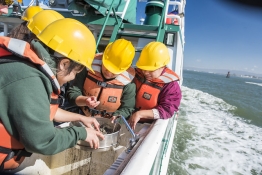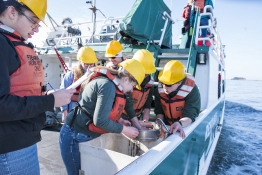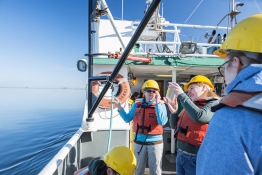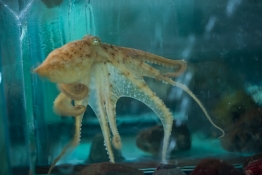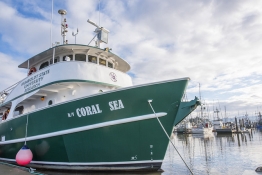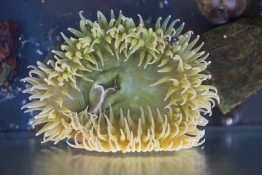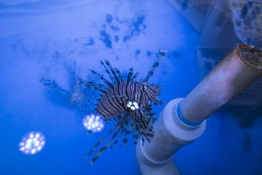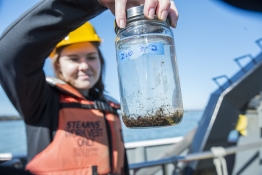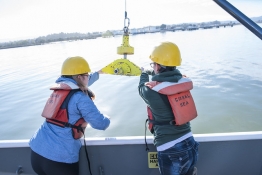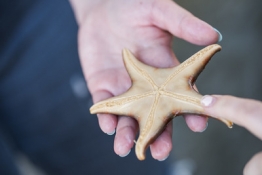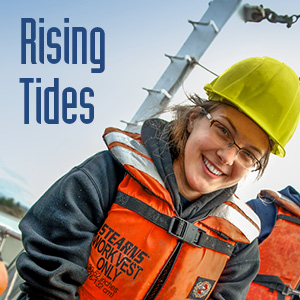Practical Experience
The Oceanography program is based heavily in field-based experiences that will hone your critical thinking skills and reinforce what you're learning in the classroom.
Your immersion into Oceanography begins right away. As a freshman, you’ll automatically be part of the Rising Tides learning community. It’s a yearlong program designed to teach you marine science by letting you be a marine scientist. And you’ll build connections with students who are as passionate about the ocean as you.
We’re a small, close-knit department that focuses on more than academics. As early as your sophomore year, you’ll engage in internships and paid research opportunities. For instance, undergraduate students have been hired to deploy balloons that measure gas concentrations in the atmosphere -- data they used for further research and their thesis.
Throughout your time at Humboldt, you'll learn and practice the techniques needed to conduct research at sea and in the laboratory. Aboard our 90-foot ocean-going research vessel, the Coral Sea, you’ll use key research techniques. Learn to use trawls, plankton nets, box-corers, sediment grab samplers, CTD/Rosette samplers, side-scanning sonar, and other oceanographic sampling equipment. By the time you graduate, you can expect to log around 100 hours at sea.
In addition to being in the open ocean, you’ll have access to the Marine Lab in nearby Trinidad where several of the core Oceanography courses are taught and often used for student and faculty research projects. The lab is well equipped for marine education and research, including a constantly recharged seawater system with chiller, a wet laboratory for rearing marine invertebrates and fishes, a culture room for larval invertebrates and algae, a walk-in freezer, a walk-in cold room, a large shop for design and fabrication of experimental equipment, and a microscope room. Our cutting-edge equipment includes the Burkolator, sophisticated equipment designed to measure ocean acidification in real time.

